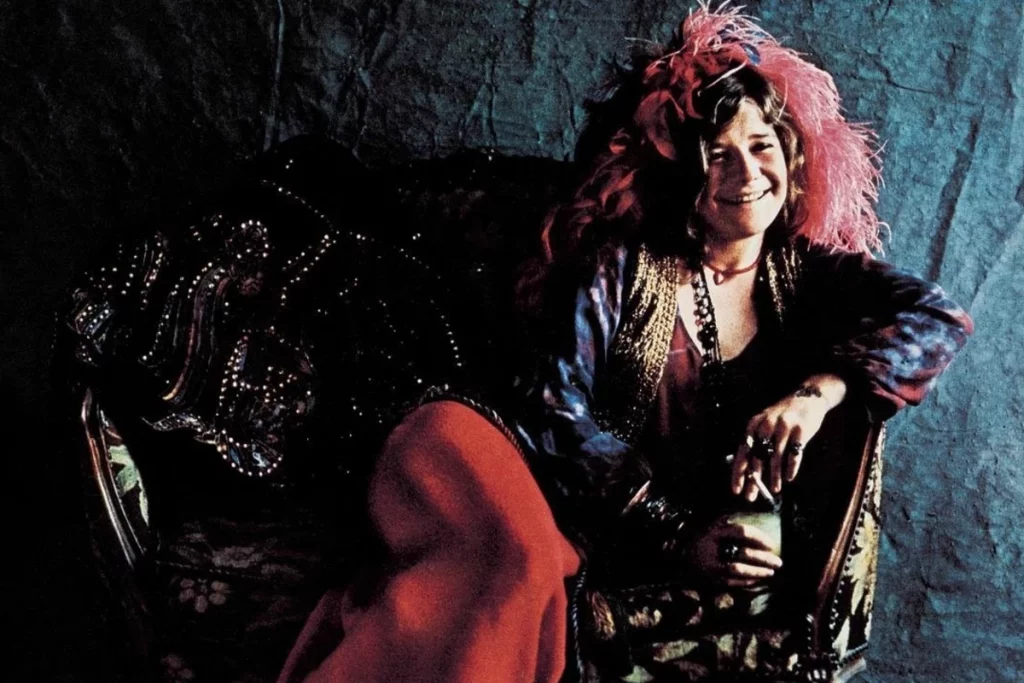
Janis Joplin and the Ballad of Freedom and Shared Dreams: A Look at “Me and Bobby McGee”
In the annals of rock music history, few voices have resonated with such raw power and unbridled emotion as that of Janis Joplin. Her soulful renditions of blues and rock anthems became the soundtrack of a generation, capturing the spirit of rebellion and the yearning for authenticity that defined the 1960s. Among her most iconic and enduring songs is “Me and Bobby McGee,” a poignant ballad that encapsulates the themes of freedom, love, and the pursuit of dreams.
Written by Kris Kristofferson, “Me and Bobby McGee” first gained popularity in 1969 when it was recorded by Roger Miller. However, it was Joplin’s version, released in 1971, that truly transformed the song into a cultural touchstone. With her impassioned vocals and heartfelt delivery, Joplin breathed life into the lyrics, imbuing them with a depth of emotion that resonated deeply with listeners.
The song opens with a stark and evocative image: “Busted flat in Baton Rouge, waiting for a train.” This setting of poverty and transience immediately establishes the context of the narrative, a world where dreams and aspirations often collide with harsh realities. The protagonist, a nameless drifter, is joined by Bobby McGee, a fellow traveler on life’s unpredictable journey.
Together, they embark on a quest for freedom, seeking escape from the confines of their mundane lives. They “thumb a diesel down,” hitchhiking their way across the country in search of new horizons. The open road becomes a symbol of their liberation, a chance to shed the burdens of the past and embrace the possibilities of the future.
As they travel, the narrator reflects on the nature of freedom and its elusive nature. “Freedom’s just another word for nothing left to lose,” they sing, acknowledging the paradox that true freedom often lies in embracing the lack of material possessions or societal constraints. It is a sentiment that resonates with those who have felt trapped by societal expectations or the weight of personal struggles.
Despite the challenges they face, the narrator and Bobby McGee find solace in their shared dreams and aspirations. They dream of “a place where nobody knows your name,” a haven where they can escape the judgments and expectations of others. This shared dream becomes a beacon of hope, guiding them through the darkness and uncertainty of their journey.
The song’s emotional climax arrives in the final verse, as the narrator recounts Bobby McGee’s untimely death. “Bobby died in New Orleans by the side of the road,” they sing, their voice heavy with grief. The loss of their companion casts a shadow over their journey, reminding them of the fragility of life and the fleeting nature of dreams.
Yet, even in the face of loss, the narrator finds a glimmer of hope. They remember Bobby’s words, “We ain’t no good at goodbye,” and resolve to carry on, honoring their shared dream. The song ends with a poignant image of the narrator walking on, alone but undeterred, towards the uncertain horizon.
“Me and Bobby McGee” is more than just a song; it is an anthem for the lost souls and dreamers who dare to challenge the status quo and chase their own destinies. Joplin’s powerful vocals and the song’s evocative lyrics have cemented its place as a timeless classic, a reminder that even in the face of hardship and loss, the human spirit can endure and the pursuit of dreams can never be extinguished.